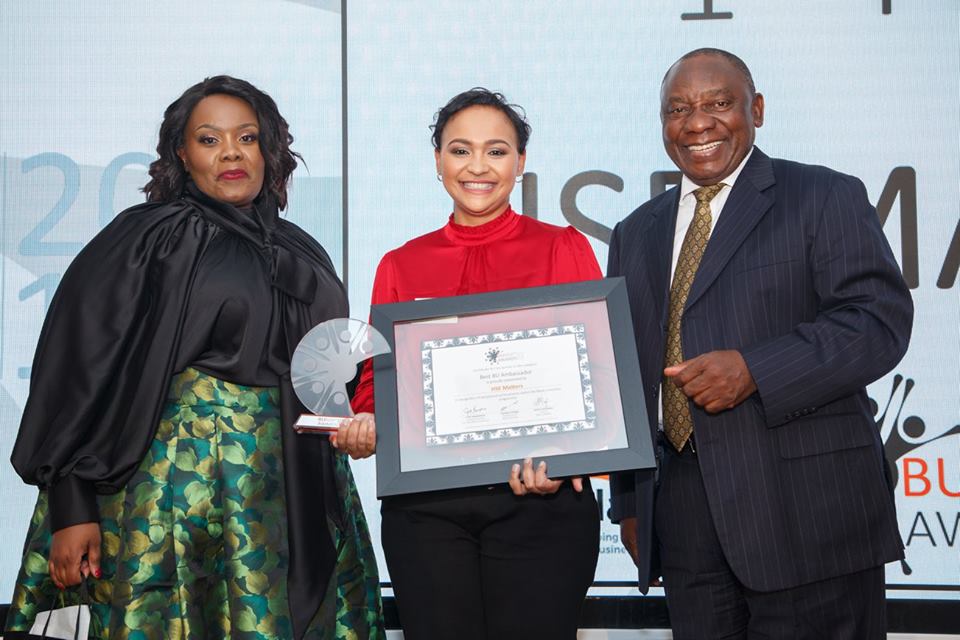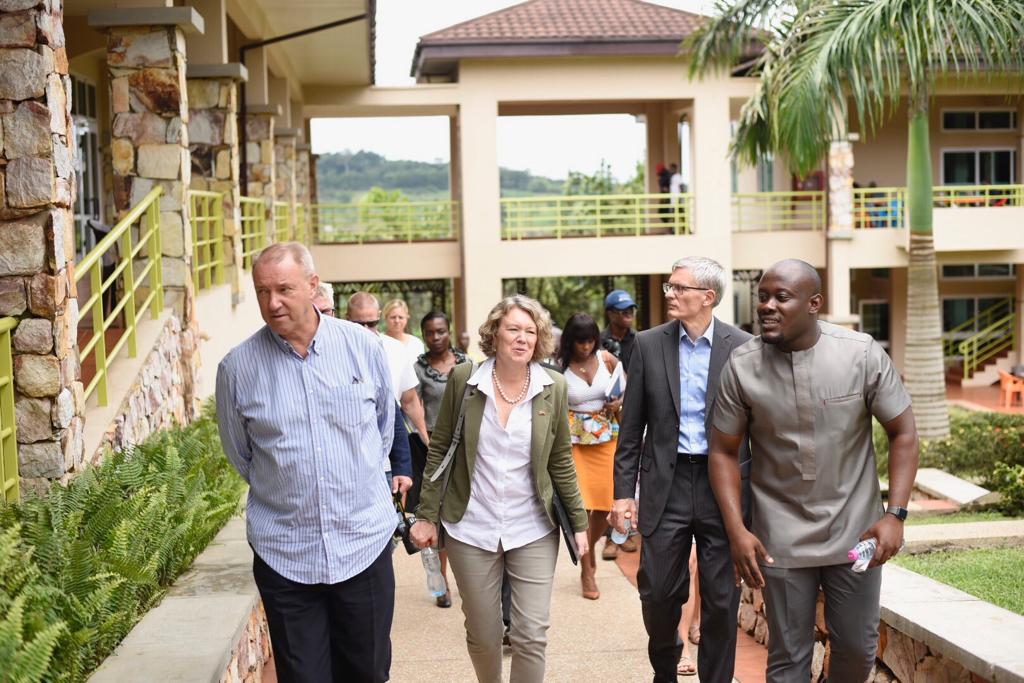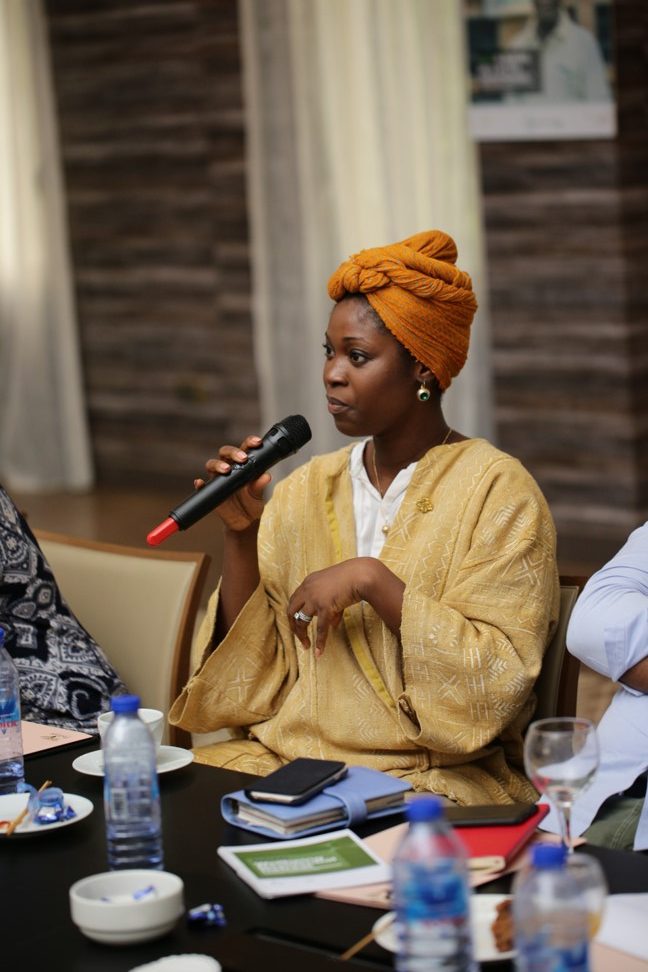“Whether you believe you can, or you can’t – you are right.” Henry Ford. Mindset is a key cornerstone of leadership. “Mindset and Perspectives” was therefore one of the topics that the participants of the Women Entrepreneur Transformation Programme (WETP) explored. The programme kicked off in February and is run by the Ghana Climate Innovation Centre (GCIC) at Ashesi University and is facilitated by leadership transformation facilitator and coach, Rachel Allan.
“Our minds are infinitely powerful. This is important to understand so that we can actively choose how we experience ourselves and the world around us,” says Rachel introducing the topic. “As leaders, we shape our organisation’s culture, our teams, and our own experience by what we believe and how we respond. Mindset can be intentional, and overtime choosing the most effective mindset for a situation can be natural. If you believe you can – you will. It’s that simple – well, almost. Female leaders are trained to help them get a clear understanding of what impact they want to have and to choose their most resonant mindset to maximise their impact at work and at home. This results in authentic leadership, increased confidence, and positive impact on themselves in their private and professional lives.”
While exploring “mindset and perspectives”, WETP participants were encouraged to put theory into practice, and take personal responsibility for their choices.
To be intentional with our impact, we must first become aware of ourselves, and of our way of thinking: observe what we do, when we do it; as a result, we can consciously and pro-actively choose our perspectives; and commit to our actions accordingly. Eventually, we can influence the impact we have on our cultures and all areas of our lives.
“I am more and more convinced that our happiness or unhappiness depends more on the way we meet the events of life than on the nature of those events themselves,” already said Alexander von Humboldt.
Our minds and thoughts have more influence than we realise, so our perspectives on issues and events can set us up for success, or failure. Often, we blame external circumstances for what happens to us. But most often those are the aspects we do not have control over. One of the few things we do have control over in life is how we respond to any given situation. That change of perspective alone is powerful. When we shift our mindset, our choices change, and eventually, it influences the impact we have. We move from being a victim of our circumstances to shaping our reality.
Participants were invited to critically ask themselves: Who do you want to be as a leader? What impact do you intend to have in the world? And: Where do you get stopped?
But how do you actually go about adopting a potentially different mindset? Some “perspectives” the participants investigated in the programme include:
- Envision your “Future Self”: What would the “60-year-old you” tell you?
- The “Appreciator”: Whatever the situation, good or bad, what can you appreciate about the situation you are in? What are you learning from this experience?
- The “Curious” one: Recognise that you may not understand a certain situation, but you can step into finding out more, and ask questions.
- “Just like me”: If you thought of the other person as “he or she is just like me”, what would you learn? (Check out this video by TV2 Denmark “All That We Share”)
- The “Victim”: When you feel powerless and life is happening to you, where do you stop taking active decisions?
- The “Responsible” one: Do you do everything alone, do you carry the whole world on your shoulders, do you forget to ask for help?
For each topic of the programme, there is recommended reading and additional resources. This month included Carol Dweck who researches “growth mindset” (check out her TedTalk “The power of believing that you can improve”), and the “Anatomy of Peace” by the Arbinger Institute. The latter explores four key perspectives, or “boxes” people usually find themselves in: the “worse than”, the “better than”, the “I deserve”, and the “need to be seen” box. It encourages readers to discover in which box(es) they find themselves in certain situations, and suggests a changing perspective, and meet other people as if they were “just like me”.
“Exploring different perspectives allows us to try out and experiment with different intentional impacts in real life. It can be incredibly liberating to know that one minute you are ‘hooked’ in a negative mindset, and the next you can step out of it and be highly effective. This increases our range as leaders – so we are more resourced to respond adequately. And this builds self-trust, a quality we all thrive in,” says Rachel.
Another powerful leadership tool is asking for help. It is one of the most simple ones, though it can often been seen as a sign of weakness. But moving this perspective from ‘not being good enough, vulnerable, or weak’ to appearing as a leader who empowers others, who is authentic, who listens, who receives input and feedback, who doesn’t hold all the answers. By asking for help, insights, or feedback, leaders empower others and step away from “isolation at the top”.
“If you want to go fast, go alone. If you want to go far, go together,” says an African proverb.
One of the participants, Marigold Abiss Adu, shared her experience in the process of exploring “mindset and perspectives”: “It is becoming increasingly clear that I am one with my business. I am navigating my internal and external environments. Challenges can affect me personally, and my business.”
Marigold is the Executive Director and Co-founder of Global Bamboo Products Ltd (GBPL), a bamboo-cultivation and processing business. Having completed her bachelor’s degree in Psychology, Marigold worked in different corporate institutions to acquire experiences outside of GBPL. Marigold has worked in business development, marketing and sales. She is also a Mandela Washington Fellow. She likes painting, design, singing, cooking, and simply making people and herself happy.
“My leadership intentionality has increased significantly thanks to the WETP that encouraged me to critically look at the way I am thinking, and adopt a perspective that resonates best with my goals. Now, I pick my mindset, and I am clear what the desired impact is. I know how to engage with my teams and my colleagues. I am more assertive in a defined and productive way. It’s not business as usual for me now. I consciously choose, which means my business and team and the way I lead are more aligned. It’s changing the way I do business and the results I achieve.”

The Ghana Climate Innovation Centre (GCIC) is a pioneering business incubator whose objective is to support entrepreneurs and ventures involved in developing profitable and locally appropriate solutions to climate change mitigation and adaptation in Ghana. The Centre’s key focus is on building businesses operating within the areas of energy efficiency, domestic waste management, solar energy, water supply management and purification and climate-smart agriculture. GCIC is part of the World Bank Group’s infoDev Climate Technology Program. Supported by the governments of Denmark and the Netherlands, the Centre is managed by a consortium led by the Ashesi University College and including Ernst & Young, SNV Ghana, and the United Nations University Institute for Natural Resources in Africa.
The GCIC Women Entrepreneurs’ Transformation Programme (WETP) is one of the mentoring and coaching programmes created by the GCIC on the belief that inner leadership creates outer impact, and aims to unleash the untapped potential of female entrepreneurs. The 2018 programme is created in partnership with global leadership transformation facilitator and coach Rachel Allan.
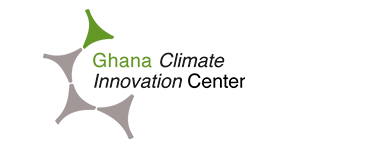

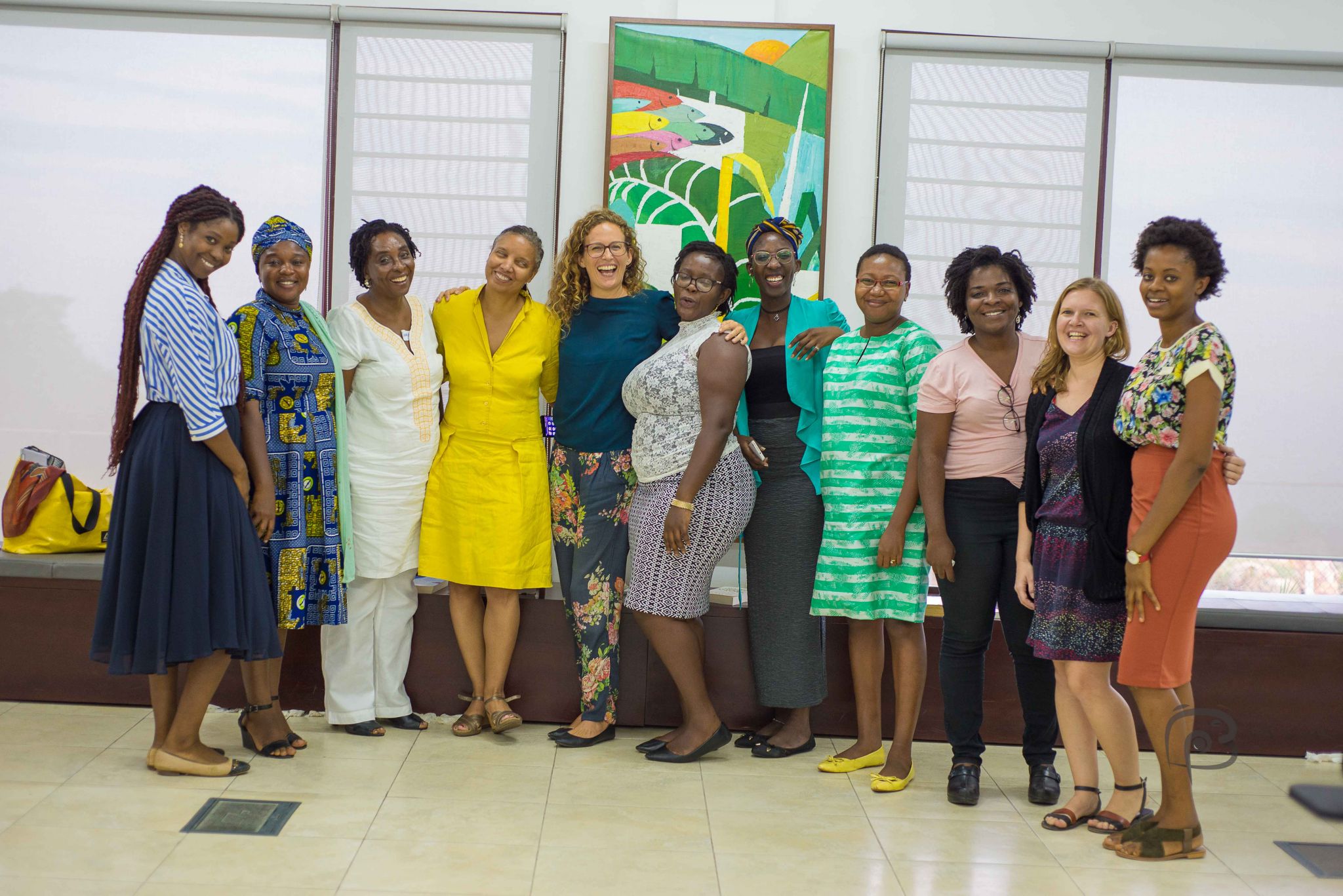

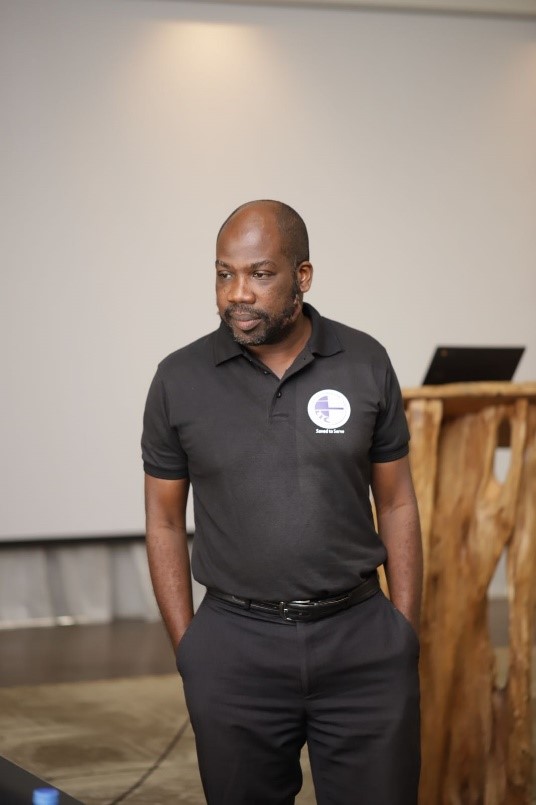



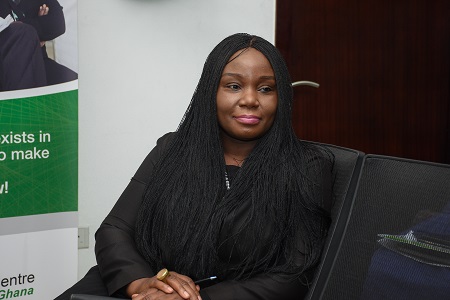


 “Learning from the earlier cohorts, we are creating clearer and more structured goals for not only ourselves, but also for the entrepreneurs,” she said. “What is really important is that incubation is not just about giving grants, it’s also about incubating innovations that will not only have economic benefit, but will also have environmental impact and social benefit as well. So as a team, we have a responsibility to do this well. As cohort one graduates at the end of May 2018, we’ll collect pre- and post-incubation metrics, CO2 emissions reduced, carbon footprint, number of households reached, so we can measure how well we are actually doing.”
“Learning from the earlier cohorts, we are creating clearer and more structured goals for not only ourselves, but also for the entrepreneurs,” she said. “What is really important is that incubation is not just about giving grants, it’s also about incubating innovations that will not only have economic benefit, but will also have environmental impact and social benefit as well. So as a team, we have a responsibility to do this well. As cohort one graduates at the end of May 2018, we’ll collect pre- and post-incubation metrics, CO2 emissions reduced, carbon footprint, number of households reached, so we can measure how well we are actually doing.”
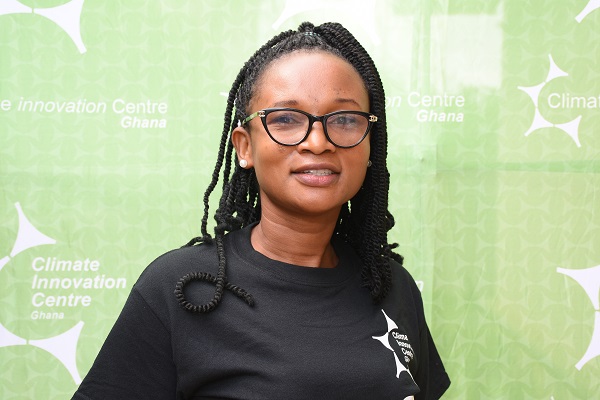


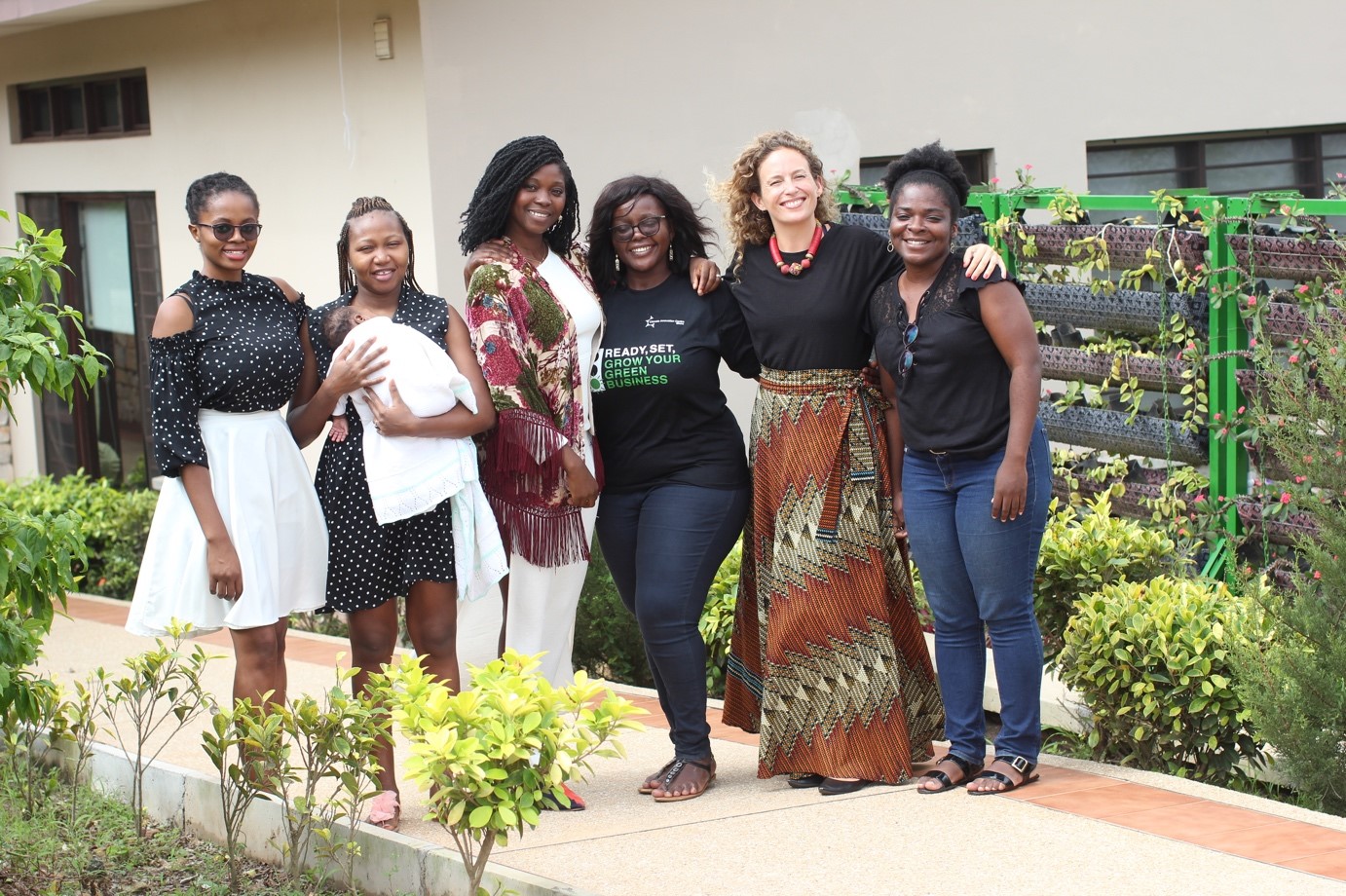


 “I was pregnant when I joined the WETP. It came at a good time in my life, and an opportunity given to me. There was a part in me that was locked, and that I had to unlock. I know I have arrived. This is me, who I am. I have helped a lot of people, I shared with people what I learned. I have created courage. Courage opens doors. I am alive, I live a whole life, this is me.” Priscilla Morny, Moringa Connect.
“I was pregnant when I joined the WETP. It came at a good time in my life, and an opportunity given to me. There was a part in me that was locked, and that I had to unlock. I know I have arrived. This is me, who I am. I have helped a lot of people, I shared with people what I learned. I have created courage. Courage opens doors. I am alive, I live a whole life, this is me.” Priscilla Morny, Moringa Connect. The 6-months Women Entrepreneur Transformation Programme aims to unleash the untapped potential of female entrepreneurs. It guides the participants to transform their leadership to a more authentic one. The process encourages them to speak up, speak their truth, and, as authentic leaders, have an increased impact in the world.
The 6-months Women Entrepreneur Transformation Programme aims to unleash the untapped potential of female entrepreneurs. It guides the participants to transform their leadership to a more authentic one. The process encourages them to speak up, speak their truth, and, as authentic leaders, have an increased impact in the world.
